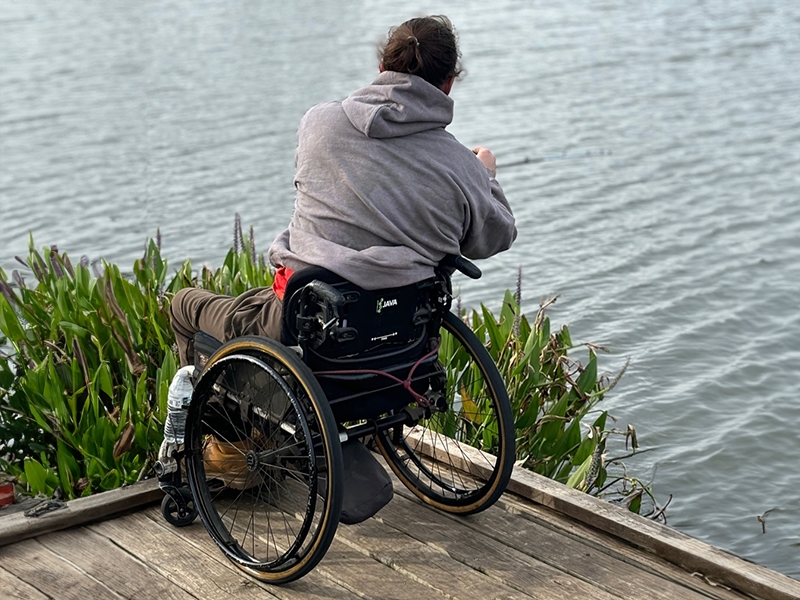
On Saturday, Sept. 28, Kennedy Higgins, a third-year occupational therapy student, collaborated with the Ozark Adaptive Sports Association to successfully host their inaugural adaptive fishing event. This initiative was part of Kennedy's capstone project, a graduation requirement for occupational therapy students, where each student selects a specific population and occupation they want to focus on.
Kennedy identified a significant interest in adaptive fishing within the wheelchair user community and aimed to create a wheelchair accessible/adaptive fishing program that would meet this need. The event attracted over 75 people, ranging from ages four to 76. The diversity of attendees included individuals with spinal cord injuries, spina bifida, cerebral palsy, strokes, autism, and ADHD, highlighting the event's broad impact across various demographics.
Participants boasted about the opportunity to engage in the occupation of fishing. Many shared heartfelt sentiments such as, "It was nice to get out and fish with other people after thinking I would never be able to fish again."
This event fostered a strong sense of community, with participants noting that "events like this make you realize you're not alone." Community collaboration was vital for this event's success as well as the sustainability of the fishing program in the future.
The event not only fulfilled its immediate goals but also laid the groundwork for ongoing partnerships between non-profits, healthcare facilities, state entities, media outlets, UofA/UAMS occupational therapy department, and outdoor sporting communities. Thanks to the equitable connections established throughout this project, the Ozark Adaptive Sports Association plans to host another fishing event in the spring. This event left a significant impact on the Northwest Arkansas community that live with physical disabilities and created a sense of community that many participants have longed for since their injury.
Topics
Contacts
Kennedy Higgins,
Occupational Therapy
316-755-8996, kshiggin@uark.edu